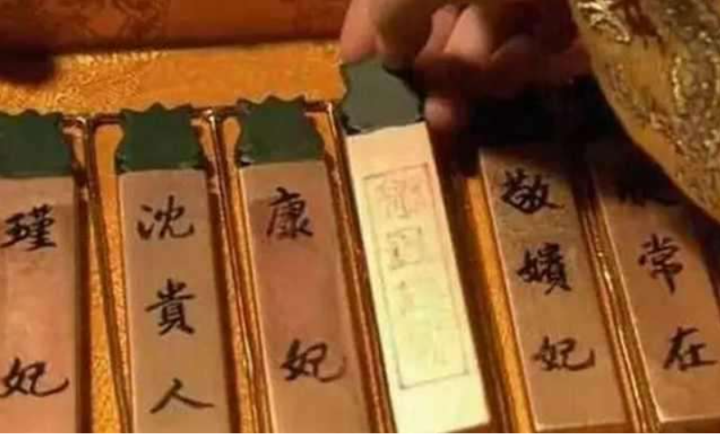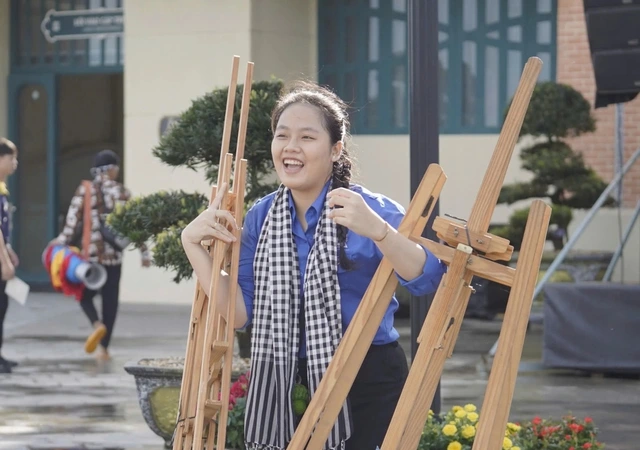Feudal life often focused on men and neglected women. It can be said that women born in that time could only rely on men to gain status in society.
The imperial palace is the best choice for women to achieve that. This is also where the competitive pressure is the greatest, because the imperial palace has up to 3,000 concubines but only one emperor. Whoever is favored by the emperor will have a new page in life, and if that person has children, they will be even more promoted.
To favor thousands of beauties, the emperor had no choice but to flip the card.

The emperor will flip the cards to choose the person to sleep with. (Illustration: Sohu)
During feudal times, menstruation was a very private and embarrassing matter for women. According to royal palace regulations, concubines during this period were not allowed to serve the king, because it could affect the fate of the nation. Any concubine who intentionally violated the rules would be beheaded.
This matter could not be directly told to outsiders or the emperor, so the concubines always had to think of many ways to secretly convey the matter to avoid embarrassment. If they accidentally upset the emperor, the concubines could be punished for treason, sent to the cold palace, or even lose their lives.
In this situation, how would the concubines inform the emperor without making him angry?

When "that time of the month" comes, many concubines choose to hang red lanterns in front of the palace gate to secretly notify the emperor. (Illustration: Sohu)
In fact, the above notification regulations appeared since the Han Dynasty. In each different dynasty, the women in the palace would have different hidden and subtle ways to secretly notify. Among them, concubines wearing gold rings on their hands or hanging red lanterns in front of the door were the two most used methods.
Wearing a gold ring on the hand was a common practice during the Tang Dynasty. Wearing a gold ring was like sending a message that the concubine could not "favor" and serve the emperor. When looking at this ring, the emperor would understand and ask about the concubine's health.
Alternatively, concubines could hang red lanterns in front of the palace door to signal to the emperor that they were on their period and were not convenient to serve, and asked to give that honor to another concubine.

Being favored by the emperor is the wish of many concubines, but if it is their "red light" day, they will have a way to announce it. (Illustration: Sohu)
Through many different dynasties, the method gradually transformed and changed to be more suitable.
During the Han Dynasty, concubines would use red rouge to make up their faces on this day. During the Tang Dynasty, concubines would tie a red thread around their wrists. Additionally, if a concubine was not feeling well, she could write a secret memorial to the emperor.
During the Ming and Qing dynasties, the "glass office" was established solely to manage the affairs of the concubines in the harem. If a concubine's period was approaching, eunuchs would be sent to notify her in advance to avoid the emperor's choice.
Quoc Thai (Source: Sohu)
Useful
Emotion
Creative
Unique
Wrath
Source


























































Comment (0)